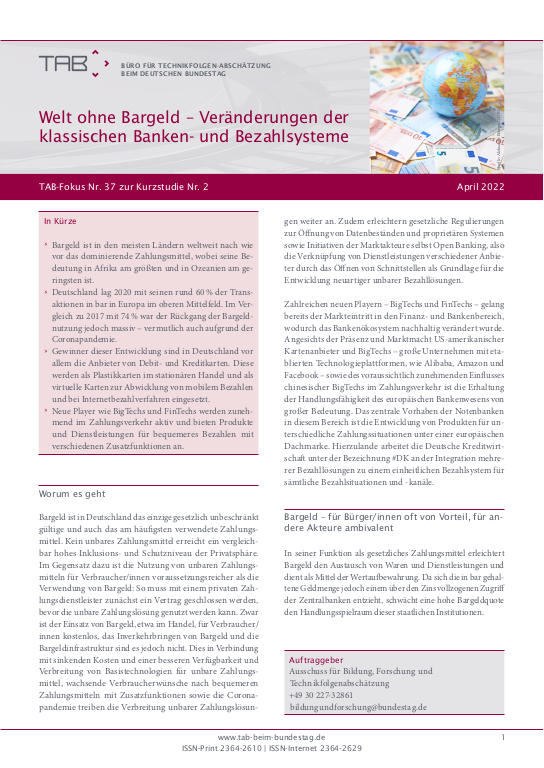World without cash?
In Germany, cash is the only unrestricted legal tender and still the most commonly used means of payment. Compared with non-cash means of payment, cash is an important corrective in payment transactions. No other non-cash means of payment achieves a similarly high level of inclusion and provides comparable protection of privacy. Nevertheless, the use of non-cash means of payment continues to increase in Germany. Card-based payment methods are of particular importance - either directly with the plastic card (debit or credit card) or with the virtual card via which non-cash payment methods are processed in the background, as is common in mobile payment and Internet payment methods.
BigTechs - large companies with established technology platforms such as Alibaba, Amazon and Facebook - are now established players in payments. Given the increasing presence and market power of U.S. card providers and BigTechs, as well as the likely growing influence of Chinese BigTechs in payments, the question of how to preserve the European banking industry's ability to act will arise more strongly in the future.
The TAB report provides an overview of developments in payment transactions up to and including February 2021, examining and comparing the specific characteristics of cash and selected non-cash payment solutions as well as payment behavior in Germany, Sweden and China. The brief study is rounded off by an examination of the changing power structure in payment transactions as a result of the emergence of new players and the reactions of traditional credit institutions and central banks to this.
The TAB report and the accompanying policy brief TAB-Fokus Nr. 37 (both currently only in German) are available online. An English translation of the TAB-Fokus will follow soon.
05.07.2022
Downloads (in German) and further information
- TAB-Kurzstudie Nr. 2 (German)
Welt ohne Bargeld – Veränderungen der klassischen Banken- und Bezahlsysteme - TAB-Fokus Nr. 37 (German)
Welt ohne Bargeld – Veränderungen der klassischen Banken- und Bezahlsysteme - Project page

